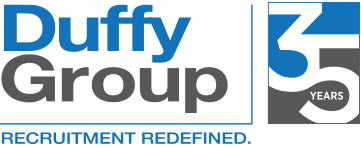There is a sense of excitement in the air that is contagious, as students and educators turn the page on summer and look toward the start of a new school year.
At Duffy Group, we have a special appreciation for educators – administrators, counselors, support staff and especially teachers – and the many ways they open the minds of our nation’s youth.
In the classroom, they are servant leaders with a toolbelt of soft skills that help students thrive.
Although their salaries do not measure up to the immense sacrifices they make for our kids, teachers ensure every student has a backpack, uniform and school supplies, even if it means reaching deep into their pockets or soliciting help from sponsors to cover the cost. For special projects and amid shrinking budgets, they are the ultimate lean project managers.
Teachers earn high marks for ingenuity, too, creating environments that inspire learning and ignite curiosity.
But what inspires me most is how teachers prepare the next generation of leaders while never forgetting the importance of learning themselves. They know what it takes to succeed: clear expectations and goals, consistent two-way communication and a culture where it’s OK to take risks. For them, learning is about accountability, with progress benchmarks and rubrics built in to measure success along the way.
If my assessment sounds like something a teacher would say, it’s because I spent some of the best years of my life in the classroom guiding 8th-grade and gifted students. What I discovered is that the skills I used then are strikingly similar to those I put to work in my job as a recruiter now.
My former teacher-turned-recruiter colleagues agree.
Bridget Querciagrossa, a senior recruiter who taught students from kindergarten to graduate school, muses, “As teachers, we are always checking for understanding, whether it’s through a quick assessment, an exit ticket, a warm-up exercise or a homework assignment, we continually evaluate if our students are comprehending the necessary material.” That is not unlike the process recruiters use to uncover insights about clients and candidates. “During our intake calls with clients or screening calls and interviews with candidates, we ask a lot of questions to ensure that we are on the right track in matching quality candidates with the companies that need them.”
Ines Hayouna hails from a school where she taught kindergarten and first grade. In those roles and now as a senior recruiter, she is keenly aware of the importance of communication. “In the classroom, I had to ensure my students understood what I was teaching by conveying information clearly, listening closely and engaging regularly with individuals of diverse backgrounds. This is what I do on a daily basis as a recruiter.”
And Nicole Gruenhaupt, a former dance instructor who recruits for clients in the government, nonprofit, and higher education industries, reflects on successful collaboration, in which each person knows how they contribute to the greater good. Teachers collaborate to create the best path for student learning, in committees to plan for various school projects, with their students’ parents to understand each child, and with their students. Great teachers also foster student-to-student collaboration – a much-needed skill in today’s workplace and the world.
“As a senior recruiter, I also practice the art of collaboration, guiding my clients through a search to identify what they are seeking in their next new hire, sharing market data to get a sense of the competitive environment and identifying the top candidates that are a perfect match for the open position.”
Teachers, like recruiters, are taskmasters. Duffy Group Senior Recruiter Tony Ferrese is a former middle and high school teacher who also worked in higher ed student affairs and engagement. “I learned to juggle many moving parts and developed excellent time management skills,” he recalls. “I also worked within career development, which provided a skillset for interviewing and reviewing resumes, which has been helpful in working with candidates as a recruiter.”
Finally, there is the all-important personal connection, which is essential to improving employee engagement and retention in the workplace and creating a teacher-student-family connection at school. The simple act of checking in with someone to ask about the birthday party they had for their child or a student’s baseball game or dance recital lets them know that you care. In return, they are motivated to work and to learn.
“As a coach and dance teacher, it is my job to help young athletes realize their potential and strive to be their best,” my colleague and dance teacher Ashton Thomas said. “I love being a small part of their journey of growth and encouraging them toward their goals. I feel similarly about working with candidates throughout the interview process.”
In polling my coworkers, it seems teachers and recruiters have more in common than I realized. One area where there is a clear point of difference is in the type and range of questions that can be asked and answered.
Taking off my recruiter hat for a moment and with an ode to teachers as they embark on the 2024-2025 school year, enjoy what an inquisitive group of kindergarteners asked my coworker Leslye Pas during her years in the classroom:
- Why do I have two eyes if I only see one thing?
- My belly hurts. Am I pregnant? (from a boy)
- Why do swear words get invented when we are not allowed to say them?
Welcome back. Have an enlightening year.



